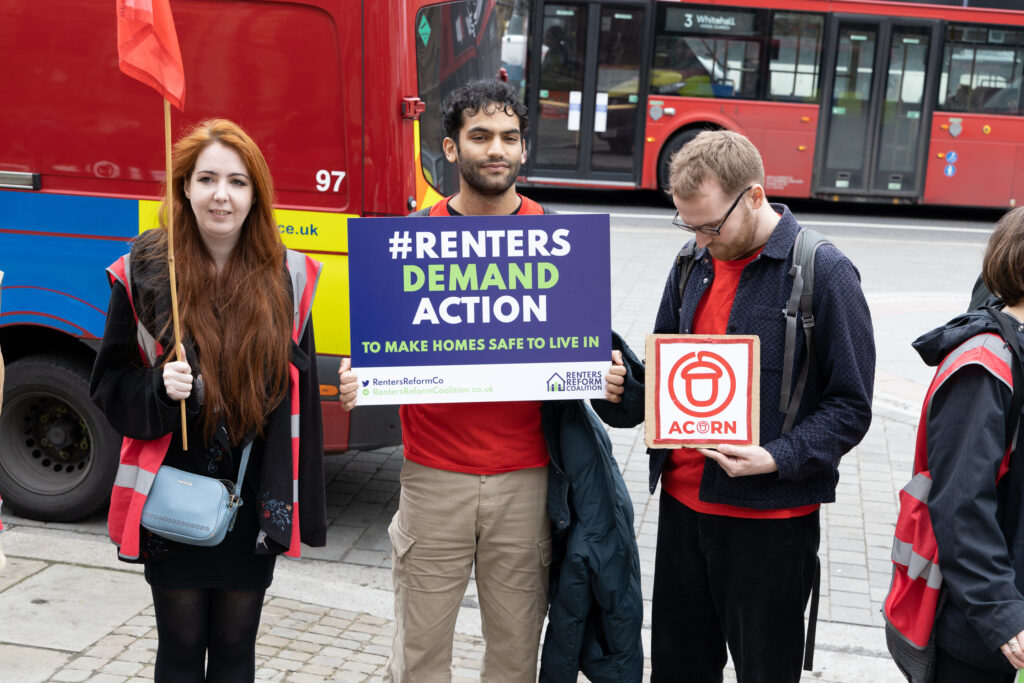by Joshua Davies, Programme Manager for Transforming the Private Rented Sector
On 21st July, Parliament closes its doors for a six-week summer recess. While MPs will be looking forward to the break, England’s renters are heading into a summer of discontent. Rents are skyrocketing, living conditions for private renters are worse than they are in any other type of home, and tenants live in fear of being evicted at any time without their landlord needing to give a reason.
The Renters’ Reform Bill – first promised in 2019 – is supposed to reduce all these problems by banning ‘no-fault’ evictions, creating a national register of landlords so authorities have oversight, and giving new powers to address illegal evictions and harassment. After waiting over four years, renters finally saw the Bill introduced to Parliament in May, but despite the clear urgency facing the 19% of England’s households who rent from private landlords, the reforms haven’t even moved off the starting blocks.

There are many stages a bill must go through to become law. The next stage for the Renters’ Reform Bill is the second reading, which has been expected for weeks. Secretary of State Michael Gove claims that the delay is because an impact assessment needed to be carried out. There are also rumours that the delay is due to pressure from some MPs with concerns about the effects of the Bill on landlords. But the impact assessment has already been published – on 3 July – showing that the net cost to landlords of the Bill’s changes would only be £10 per home they rent out, per year. And rental reform is popular with the general public – polling carried out last year by our grant-holder, the Renters’ Reform Coalition, showed overwhelming support for the Bill’s principles across the entire political spectrum, including Conservative homeowners.
What does delay to the Renters’ Reform Bill mean?
If the second reading doesn’t happen this week, it will be delayed until at least September. Let’s look at what this delay means for the real lives of people who are renting.
Parliamentary recess lasts six weeks. During this summer break for MPs:
- 8,846 renters will be evicted from their homes through no fault of their own into a rental market of soaring costs and fierce competition for homes.
- Of these, over 1,800 will register as homeless with their local council.
- 2.3 million people will continue to live in poor-quality homes that do not meet the Decent Homes Standard. And if they complain to their local council about poor conditions, they have a 46% chance of receiving a no-fault eviction notice from their landlord.
- With the average new rent 11% higher than in 2022 and a 116% rise in no-fault evictions by bailiffs since last year, renters quite literally cannot afford to wait.
The Renters’ Reform Bill, if done right, could greatly improve the lives of England’s 11 million renters. It could provide greater security, better living conditions, protection from retribution when challenging illegal practice by a bad landlord, and the foundation of a stable home on which to build their lives. The government must get on with the Bill and bring it for a second reading in Parliament. How many more must lose their homes before the promised protections are granted?
Do you want to see change for renters?
Tweet this article #RentersAreWaiting, or join the campaign on the Renters’ Reform Coalition website.
